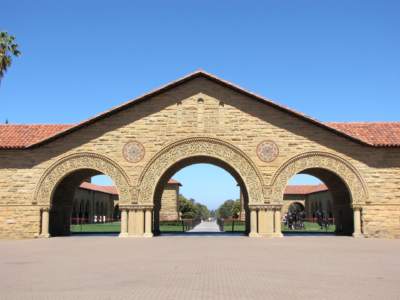College campuses do not run rampant with anti-Semitic sentiment – at least according to Stanford professor Ari Kelman’s latest study.
To accomplish this, he and his coauthors conducted interviews with 66 students across five California schools – Stanford, UC Berkeley, San Francisco State University, UCLA, and UC Irvine. Kelman sought out students who are not active in Jewish or Israel organizations on campus in order to capture what he characterized as the majority Jewish college experience.
We asked Kelman some questions we had about his study. Answers have been edited for brevity and clarity.
Q: Why did you decide to conduct a survey on Jewish campus life?
A: I am not only a professor. I live on campus, too. I’m a resident fellow, which is like a dorm parent. I live with 100 first-year students. And what I was reading in the press did not at all resemble what I was experiencing. So, I thought, “Someone should really do a study of student impressions of these issues.” And then I realized, “Oh. That someone is me.”
Q: Why did you choose to speak to students who were minimally involved in Jewish life on campus? Why not speak to students across the spectrum of involvement?
A: Here’s why. The majority of students are uninvolved. I kind of know what AIPAC thinks and I kind of know what JVP thinks because those are the people who get reported on in the press, so I was not involved in those who are already committed to the fight in one way or another. I wanted to find out about all those students whose opinions have not been registered in one way or another.
Q: How would you characterize the students in your study?
A: They’re great, interesting, smart, proud to be Jewish.
Q: How would you characterize the political leanings of your interview subjects when it came to Israel? Did they fall across the spectrum or were they concentrated on one side or another?
A: About 60 percent of them self-identified as “liberal.” That would be coincident with attitudes among college students, in general. I’ll note that even those who identified themselves as politically conservative still expressed reservations about Israel’s policies and desired a peaceful and just solution to the conflict.
Q: You spoke to students at five California schools. Do you think your findings could be applied to the rest of the country?
A: I would hesitate to do that, but I think there are learnings that our report revealed that might be useful in other settings.
Q: What do you think was the most important finding of your study? The most surprising?
A: Most important: Students do not characterize their campuses as hotbeds of anti-Semitism.
Most surprising: This might go without saying, but students are not just people who go to class. Their social worlds revolve around their campuses and even though I understand that (and live it, to an extent), I had forgotten about the powerful interplay of social and political forces that shape student experience. This is not unique to students either. “Grown ups” are also subject to these forces, but we imagine students as autonomous beings whose choices about classes or student groups are driven by some rational interest, rather than by an assessment of a constantly shifting social terrain.
Q: Do you have any advice for Jewish students on campus based on your study?
A: Speak up.
Q: How would you like the Jewish establishment to react to or internalize the results of your study?
A: I would like leaders of American Jewish communities to stop fanning the flames of divisiveness that the students in our study found so alienating.
Q: How do you plan on moving forward with your research? Are there any other voices you would like to bring into the conversation about the Jewish college experience?
A: I think, for now, I’m going to leave this here, though I invite other researchers to investigate other dimensions of the phenomenon.
Sarah Asch is a Middlebury College student graduating in 2019 with a major in English and creative writing and a minor in Spanish.
![stanford-university-2600001_1920 Stanford University | [Public Domain], via Pixabay](https://newvoices.org/wp-content/uploads/2017/09/stanford-university-2600001_1920.jpg)

